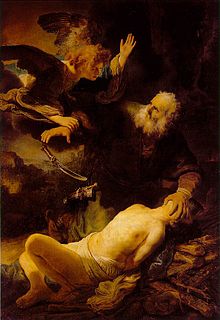Gems from the East
Appearance









Gems from the East, a "Birthday Book of Precepts and Axioms" is composed of brief ageless wisdom teachings from the East, a few short lines for every day of the year, compiled by H.P. Blavatsky, first published in 1890. It has been translated into several languages.
Quotes
[edit]- The Precepts and Aphorisms, compiled by "H.P.B.," are culled chiefly from Oriental writings considered to embody, in part, teachings which are now attracting so much attention in the West, and for the diffusion of which the Theosophical Society is mainly responsible... It contains a Precept or an Axiom for every day in the year; lines of a Theosophical nature, selected from sources not invariably Oriental, preface each month... It is hoped that our efforts will meet with approval from all lovers of the good and beautiful, and that they may not be without effect in the cause of TRUTH.
- Preface W.R.O.
January
[edit]- UTTISHAT! — Rise! Awake!
Seek the great Teachers, and attend! The road
Is narrow as a knife-edge! Hard to tread!
But whoso once perceiveth HIM that IS; —
Without a name, Unseen, Impalpable,
Bodiless, Undiminished, Unenlarged,
To senses undeclared, without an end,
Without beginning, Timeless, Higher than height,
Deeper than depth! Lo! Such an one is saved!
Death hath not power upon him!- The Secret of Death (fr. The Katha Upanishad).
- The heart which follows the rambling senses leads away his judgment as the wind leads a boat astray upon the waters.
- January 2
- He who casts off all desires, living free from attachments, and free from egoism, obtains bliss.
- January 3
- To every man that is born, an axe is born in his mouth, by which the fool cuts himself, when speaking bad language.
- January 4
- As all earthen vessels made by the potter end in being broken, so is the life of mortals.
- January 5
- Having tasted the sweetness of illusion and tranquillity, one becomes free from fear, and free from sin, drinking in the sweetness of Dhamma (law).
- January 8
- False friendship is like a parasitic plant, it kills the tree it embraces.
- January 9
- Men who have not observed proper discipline, and have not gained treasure in their youth, perish like old herons in a lake without fish.
- January 11
- As rain does not break through a well-thatched house, passion will not break through a well-reflecting mind.
- January 13
- He who hath too many friends, hath as many candidates for enemies.
- January 14
- All our dignity consists in thought, therefore let us contrive to think well; for that is the principle of morals.
- January 17
- Flattery is a false coin which circulates only because of our vanity.
- January 18
- Narrowness of mind causes stubbornness; we do not easily believe what is beyond that which we see.
- January 19
- The soul ripens in tears.
- January 20
- This is truth the poet sings — That a sorrow's crown of sorrows / Is remembering happier things.
- January 21
- It is not every graceful form that contains as graceful a disposition.
- January 24
- Every man thinks his own wisdom faultless, and every mother her own child beautiful.
- January 26
- A narrow stomach may be filled to its satisfaction, but a narrow mind will never be satisfied, not even with all the riches of the world.
- January 28
February
[edit]- Behold, we know not anything;
I can but trust that good shall fall
At last — far off — at last, to all,
And every winter change to spring. - So runs my dream: but what am I?
An infant crying in the night:
An infant crying for the light:
And with no language but a cry.- Tennyson (In Memoriam)
- Two things are impossible in this world of Maya: to enjoy more than Karma hath allotted; to die before one's hour hath struck.
- February 1
- A student without inclination for work is like a squirrel on its wheel; he makes no progress.
- February 2
- A traveller without observation is a bird without wings.
- February 3
- A learned man without pupils, is a tree which bears no fruit; a devotee without good works, is a dwelling without a door.
- February 4
- A thousand regrets will not pay thy debts.
- February 9
- To feel one's ignorance is to be wise; to feel sure of one's wisdom is to be a fool.
- February 11
- One proof is better than ten arguments.
- February 12
- Rain in the morn brings the sun after noon. He who weeps today, may laugh tomorrow.
- February 13
- Like oil, truth often floats on the surface of the lie. Like clear water, truth often underlies the seeming falsehood.
- February 15
- Often vinegar got for nothing, is sweeter to the poor man than honey bought.
- February 16
- Every tree hath its shadow, every sorrow its joy.
- February 17
- The fields are damaged by weeds, mankind by passion. Blessed are the patient, and the passionless.
- February 18
- The virtuous man who is happy in this life, is sure to be still happier in his next.
- February 19
- What ought to be done is neglected, what ought not to be done is done. The sins of the unruly are ever increasing.
- February 20
- Without Karma, no fisherman could catch a fish; outside of Karma, no fish would die on dry land, or in boiling water.
- February 21
- Let every man first become himself that which he teaches others to be.
- February 22
- He who hath subdued himself, may hope to subdue others. One's own self is the most difficult to master.
- February 23
- Hatred is never quenched by hatred; hatred ceases by showing love; this is an old rule.
- February 24
- The path of virtue lies in the renunciation of the seven great sins.
- February 25
- The best possession of the man of clay is health; the highest virtue of the man of spirit is truthfulness.
- February 26
- Man walks on, and Karma follows him along with his shadow.
- February 27
- Daily practical wisdom consists of four things: — To know the root of Truth, the branches of Truth, the limit of Truth, and the opposite of Truth.
- February 28
About this book
[edit]- The book Gems from the East was published in 1890 in London and New York. Since then it has been republished many times and has been translated into many languages... it contains the wisdom of different nations and ages. She (HPB) widely used The Sacred Books of the East (SBE)– the prolific series of fifty volumes which has translations of key sacred texts including: Hinduism, Buddhism, Taoism, Confucianism, Zoroastrianism , Jainism, and Islam. The series was edited by the famous linguist and scholar of comparative religion, Max Müller, who is also well known by scholars of The Secret Doctrine. SBE was published by Oxford University Press during 1879—1910 years, but as we know HPB would take material for her works right from manuscripts without waiting for the final published version and exact quotations prove this (considering further editors’ minor corrections).
- Some of the aphorisms were included in The Golden Rules of Buddhism (compiled by H. S. Olcott, Adyar, 1887) and were taken from this source instead of the original... The following 37 sources, listed in the below bibliography, are in the order that they appear in the book.
- 1. The Light of Asia, by Edwin Arnold, London (1879)...; 2. The Secret of Death... (1885)...; 3. H.P. Blavatsky...; 4. “The Bhagavad Gita”...; 5. “Sutta Nipata" (Buddhist scripture...); 6. Dhammapada...; 7. Pensees (Thoughts), by Blaise Pascal (1657-8)...; 8. Maxims, by François VI de La Rochefoucauld (1678)...; 9. Locksley Hall, by Lord Alfred Tennyson (1835)...; 10. The Gulistan (Rose Garden of Paradise), by Musle-Huddeen Sheik Saadi оf Shiraz (1258)...; 11. In Memoriam A.H.H., by Lord Alfred Tennyson (1849)...; 12. A Practical Grammar of the Turkish Language, by Dr. Charles Wells, London (1880)...; 13. Lucifer, monthly magazine London...; 14. Javidan Khirad... (10,000 – 7,500 B.C.)...; 15. Udanavarga...; 16. MahaMangala Sutta...; 17. The Upanishads, translated byF. Max Muller,(1884) ...; 18. Yajnavalkya-Smriti... dated to between the 3rd to 5th-century CE...; 19. The Vishnu Purana...; 20. The Path...; 21. Vasettha Sutta...; 22. Saddharma-Pundarika (The Lotus of the True Law)...; 23. Kabalistic Axiom...; 24.Vasala Sutta...; 25. “Sutra of the 42 Chapters...; 26. Rigveda...; 27. Cato, by Joseph Addison...; 28. The Conduct of Life, by R.W. Emerson (1860)...; 29. Anugita...; 30. The Voice of the Silence, by H.P. Blavatsky (1889)...; 31. Metamorhoses, by Ovid, 2-8 AD...; 32. Sanatsugatiya...; 33. The Meditations of Marcus Aurelius, Routledge, 1887...; 34. Queen Mab, by Percy Bysshe Shelley, 1813...; 35. The Babylonian Talmud, tractate “Shabbath”...; 36. The Guide of the Perplexed, by Moses Maimonides (c. 1190)...; 37. The Ordinances of Manu (Laws of Manu)...
See also
[edit]External links
[edit]- Gems from the East (full text pdf format),(full text html format).
